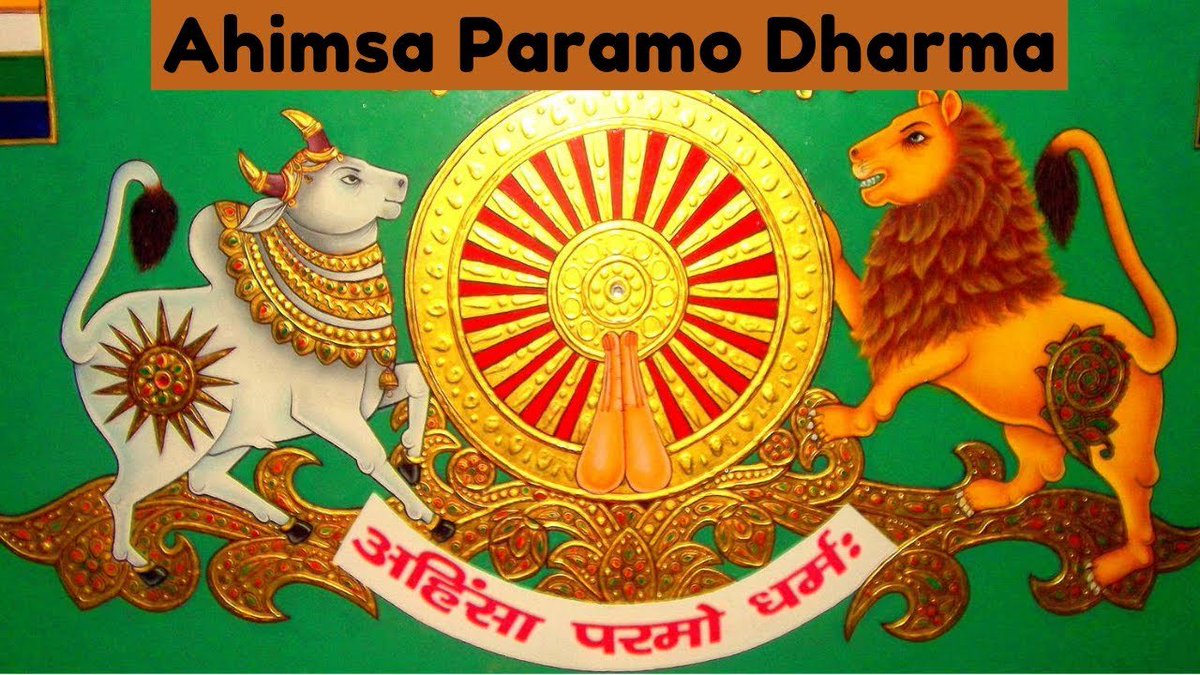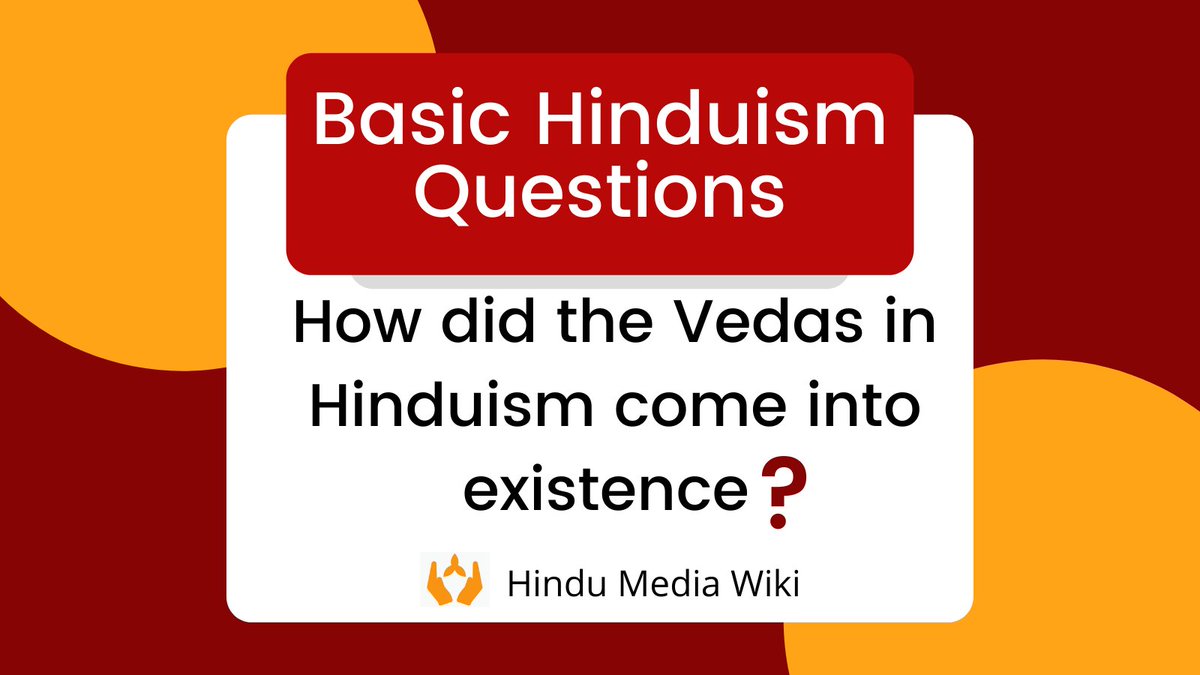
Some Reference of ahiṃsā paramo dharma in Mahabharata! A small thread
1) Adi Parva of Mahabharata: Sauti Muni talking about Rishi Sahasrapat tells Rishi Ruru about the characteristics of a brahmana.
1) Adi Parva of Mahabharata: Sauti Muni talking about Rishi Sahasrapat tells Rishi Ruru about the characteristics of a brahmana.

अहिंसा परमॊ धर्मः सर्वप्राणभृतां समृतः
तस्मात पराणभृतः सर्वान न हिंस्याथ बराह्मणः कव चित
Verily the highest virtue of man is sparing the life of others. Therefore a Brahmana should never take the life of any creature.
तस्मात पराणभृतः सर्वान न हिंस्याथ बराह्मणः कव चित
Verily the highest virtue of man is sparing the life of others. Therefore a Brahmana should never take the life of any creature.
2) Vana Parva of Mahabharata: In the Vana Parva, Markandya Muni is narrating the discussion between a brahamana named Kausika and a poultry-monger named Dharmavyadha who lived in Mithila.
The Kausika asks the fowler 'How shall I know what is virtuous conduct.'
The Kausika asks the fowler 'How shall I know what is virtuous conduct.'
In answering, Dharmavyadha states that
अहिंसा सत्यवचनं सर्वभूतहितं परम
अहिंसा परमॊ धर्मः स च सत्ये परतिष्ठितः
सत्ये कृत्वा परतिष्ठां तु परवर्तन्ते परवृत्तयः
अहिंसा सत्यवचनं सर्वभूतहितं परम
अहिंसा परमॊ धर्मः स च सत्ये परतिष्ठितः
सत्ये कृत्वा परतिष्ठां तु परवर्तन्ते परवृत्तयः
Meaning :
Among holy men, virtue is differentiated in three ways--that great virtue which is inculcated in the Vedas, the other which is inculcated in the dharma shastra, and virtuous conduct...
Among holy men, virtue is differentiated in three ways--that great virtue which is inculcated in the Vedas, the other which is inculcated in the dharma shastra, and virtuous conduct...
... And virtuous conduct is indicated by acquisition of knowledge, pilgrimage to sacred places, truthfulness, forbearance, purity, and straight-forwardness.
3) Anusasana Parva of Mahabharata: In the Anusasana Parva, Yudhisthira is asked by Lord Krishna to ask Bhishma any questions he may have as this will be his last opportunity to do so.
Yudhisthira states that Bhishma has told him that 'ahimsa paramo dharma' and is asking about it in the context of conducting sraddha in which meat is offered.
अहिंसा परमॊ धर्म इत्य उक्तं बहुशस तवया
शराथ्धेषु च भवान आह पितॄन आमिष काङ्क्षिणः
अहिंसा परमॊ धर्म इत्य उक्तं बहुशस तवया
शराथ्धेषु च भवान आह पितॄन आमिष काङ्क्षिणः
Meaning :
Thou has told it many times that abstention from injury is the highest religion. In Sraddhas, however, that are performed in honor of the Pitris, persons for their own good should make offerings of diverse kinds of meat/food.
Thou has told it many times that abstention from injury is the highest religion. In Sraddhas, however, that are performed in honor of the Pitris, persons for their own good should make offerings of diverse kinds of meat/food.
PS: Look like there is no scriptural basis to some famous quote as 'Dharma himsa tathaiva cha' (So too is all righteous violence).
It may be even wrongly attributed by the same sources to Swami Chinmayananda.
It may be even wrongly attributed by the same sources to Swami Chinmayananda.
• • •
Missing some Tweet in this thread? You can try to
force a refresh






